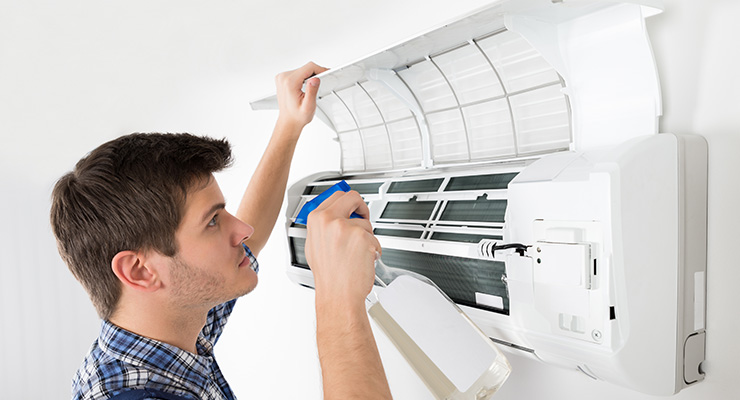Officialtollfree – Air conditioners, while providing a refuge from the sweltering heat, often harbor hidden threats to indoor air quality and overall efficiency. Regular cleaning of air conditioning units is paramount to maintaining optimal performance and ensuring a healthy indoor environment. In this comprehensive explanation, we’ll delve into the significance of cleaning air conditioners and detail effective techniques for achieving this.
Table of Contents
Explaining the Importance and Techniques of Air Conditioner Cleaning
Importance of Air Conditioner Cleaning:
The importance of cleaning air conditioners cannot be overstated. Here’s why it’s crucial:
- Enhanced Efficiency: Over time, air conditioner components such as filters and coils accumulate dust and debris, impeding airflow and reducing efficiency. Cleaning these components ensures unrestricted airflow, enabling the unit to operate more efficiently and effectively cool the space.
- Improved Indoor Air Quality: Dirty air conditioner filters and coils can become breeding grounds for bacteria, mold, and allergens. As air circulates through the unit, these contaminants are dispersed into the indoor environment, compromising air quality and potentially triggering respiratory issues. Regular cleaning helps mitigate these risks, promoting cleaner and healthier indoor air.
- Prevention of Malfunctions: Neglected air conditioners are prone to malfunctions and breakdowns, leading to costly repairs or premature replacement. By conducting routine cleaning and maintenance, you can identify and address minor issues before they escalate, thereby prolonging the lifespan of your air conditioner and minimizing unexpected repair expenses.
- Energy Savings: A clean and well-maintained air conditioner operates more efficiently, consuming less energy to achieve desired temperature levels. By reducing energy consumption, regular cleaning not only lowers utility bills but also contributes to environmental conservation by decreasing carbon emissions associated with electricity generation.
Effective Techniques for Air Conditioner Cleaning:
Now, let’s explore the step-by-step techniques for effectively cleaning air conditioners:
-
Filter Cleaning:
- Remove the air conditioner filter from its housing.
- Gently vacuum the filter to remove loose dust and debris.
- Soak the filter in a mixture of mild detergent and water for approximately 15-20 minutes to dissolve stubborn grime.
- Rinse the filter thoroughly with clean water to remove detergent residue.
- Allow the filter to air dry completely before reinstalling it in the unit.
-
Coil Cleaning:
- Access the evaporator and condenser coils by removing the outer cover of the air conditioner.
- Use a soft brush or a vacuum cleaner with a soft brush attachment to carefully remove accumulated dirt and debris from the coils.
- For heavily soiled coils, apply a specialized coil cleaner following the manufacturer’s instructions.
- Rinse the coils with water to remove cleaner residue and allow them to dry thoroughly before reassembling the unit.
-
Drainage System Maintenance:
- Locate the drainage channels and remove any visible blockages or debris.
- Flush the drainage channels with a mixture of water and vinegar to dissolve mold and algae buildup.
- Ensure unobstructed water flow by pouring clean water through the channels and observing its free passage.
-
Exterior Cleaning:
- Wipe the exterior surfaces of the air conditioner with a damp cloth to remove surface dust and dirt.
- For stubborn stains, use a mild detergent solution and a soft brush to gently scrub the affected areas.
- Rinse the exterior with clean water and allow it to dry completely before restoring power to the unit.
-
Regular Maintenance:
- Schedule periodic maintenance checks for your air conditioner to identify and address any potential issues.
- Inspect the unit for signs of wear or damage, such as frayed wires or leaks, and rectify them promptly.
- Check refrigerant levels and lubricate moving parts as needed to ensure smooth operation.
- Consider hiring a professional HVAC technician for comprehensive servicing at least once a year.
Conclusion:
In conclusion, regular cleaning of air conditioners is essential for maintaining efficiency, promoting indoor air quality, preventing malfunctions, and conserving energy. By following the techniques outlined above, homeowners can ensure their air conditioning units operate optimally, providing cool and comfortable indoor environments while minimizing health risks and environmental impact. Prioritizing air conditioner cleaning not only preserves the longevity of the unit but also contributes to a healthier and more sustainable living environment for occupants.
DA

